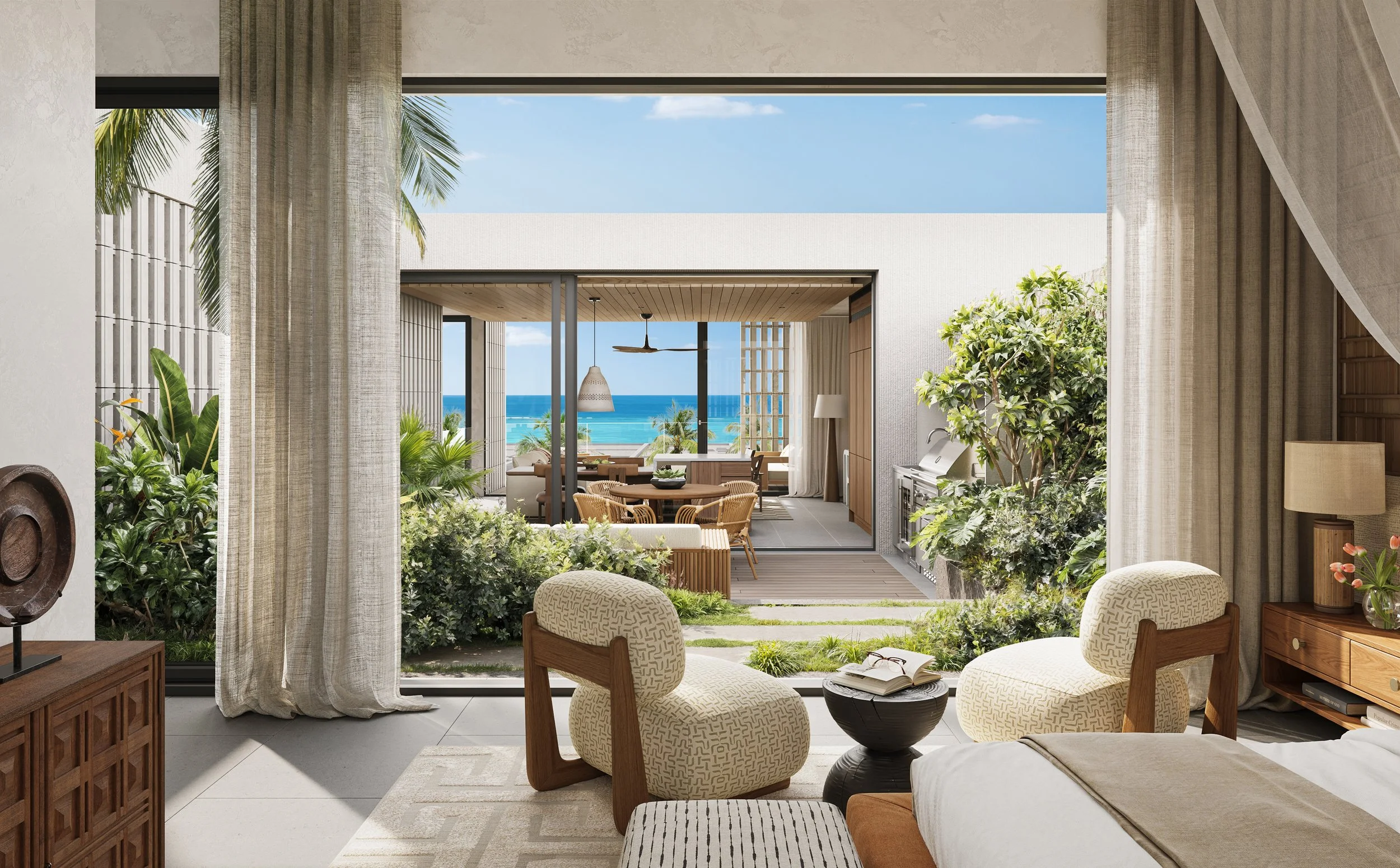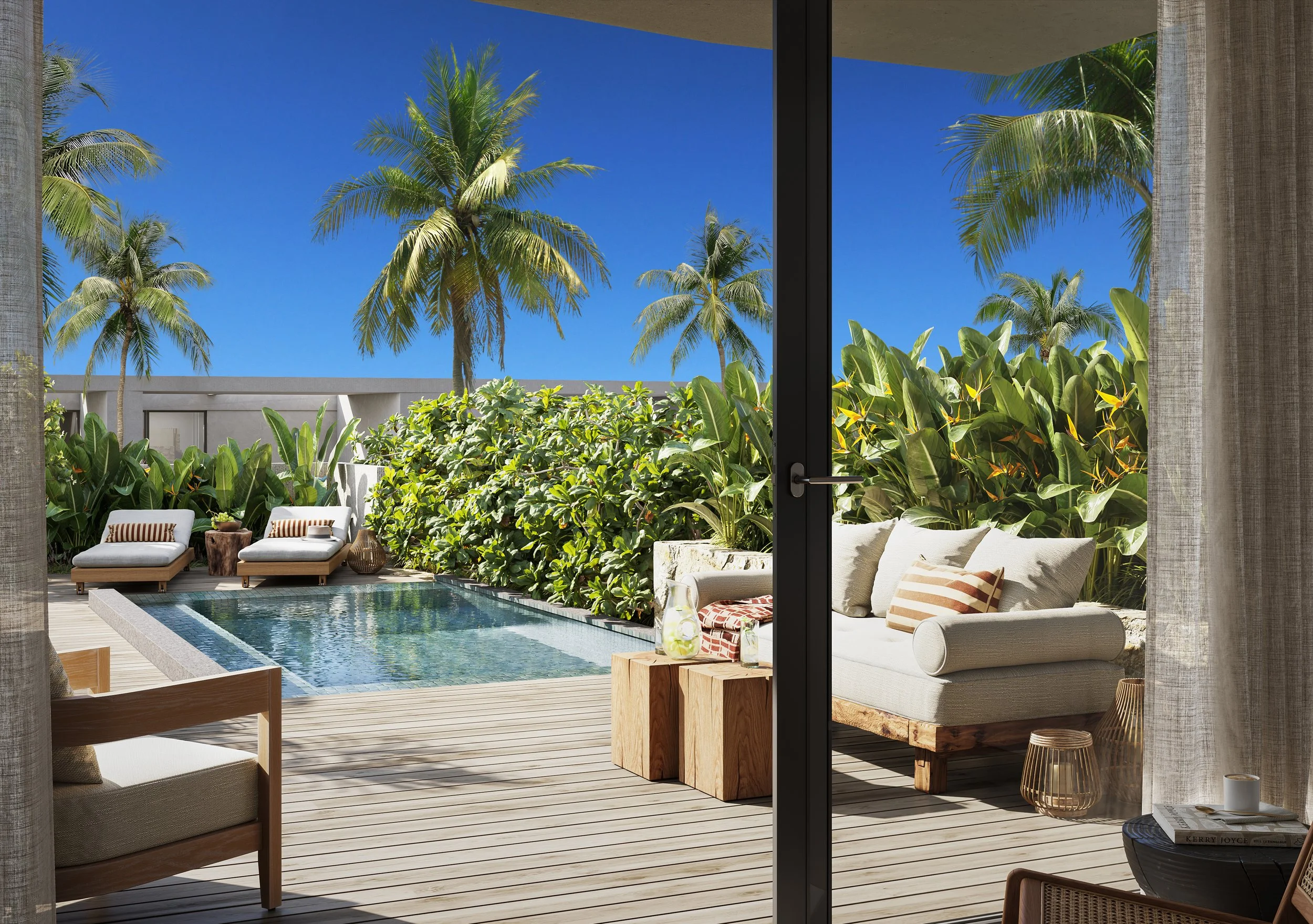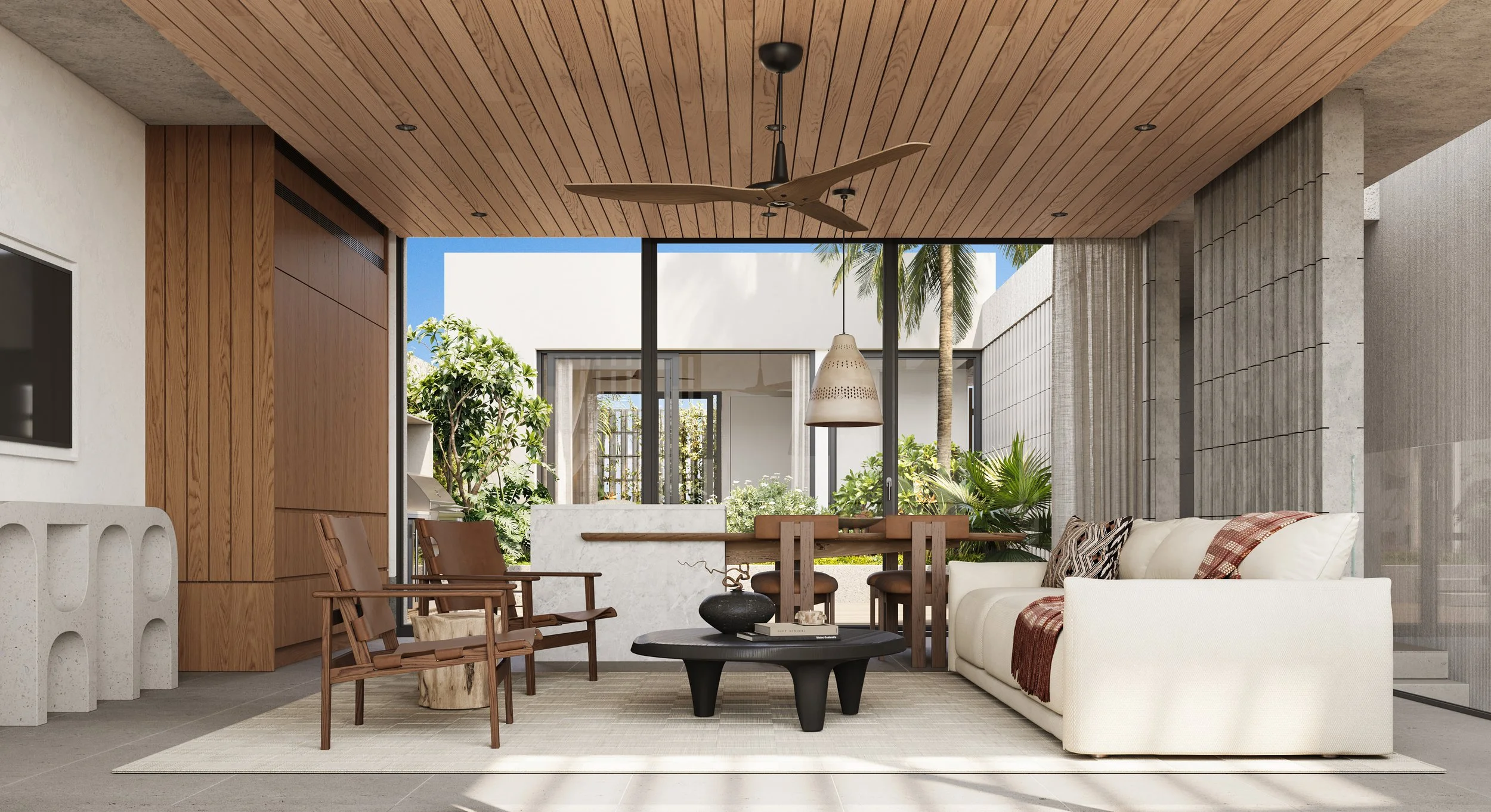Can Foreigners Buy Property in Tanzania? A 2025 Guide for Investors
Yes, foreigners can buy property in Tanzania, though the rules differ between the mainland and Zanzibar. On the mainland, land ownership by non-citizens is restricted and generally available only via investment-licensed leases. In Zanzibar, the framework is significantly more investor-friendly: through government-approved developments, foreigners (and locals) can purchase residential units or villas with long-term leases (often up to 99 years). These rights allow for secure investment, resale, or rental, and potentially the application for residency.
Put simply, if you’re looking for a holiday home, a lifestyle property, or a secure investment by the Indian Ocean, Zanzibar offers simple and clear, and legal ownership rights, especially through projects that have full government approval, like Sandbank Villas.
Mainland Tanzania: Land Is for Investment, Not Private Ownership
If you’re considering buying on the mainland (Dar es Salaam, Arusha, or the Serengeti), it’s important to know one key rule: foreigners can’t own land directly. By law, all land belongs to the government, and only Tanzanian citizens can hold it permanently.
That said, foreign investors can still buy property, they just do it through a different structure. The government allows long-term leases (often up to 99 years) for approved investments such as hotels, residential developments, factories, or offices (source: TISEZA). These leases give you full control and ownership of the buildings, even though the land itself remains leased from the state.
To do this, you’ll work with the Tanzania Investment and Special Economic Zones Authority (TISEZA). This agency was created in 2025 to help foreign investors register projects, access land, and get all the permits in one place. Once your project is approved, TISEZA helps secure a “Derivative Right”, essentially a government-backed lease that gives you long-term ownership rights over your property.
How to buy property in mainland Tanzania
Register your investment project with TISEZA.
Choose your plot - the government can allocate one or help you find private land suitable for investment.
Sign a long-term lease (often 99 years) that clearly defines your rights and obligations.
Register your title with the Ministry of Lands.
Pay your taxes (usually a 1% stamp duty when buying, and capital gains tax when selling).
For those who simply want an apartment or office space (not to run a business) there’s another option. You can buy a condominium or apartment unit under Tanzania’s Unit Titles Act, which lets foreigners legally own individual units in a registered building, even though the land is collectively held.
In short:
You can’t buy freehold land.
You can lease property long-term through an investment or own a registered apartment unit.
Everything runs through TISEZA, which acts as your single contact point for approvals.
Tanzania’s system may sound bureaucratic, but it’s designed to protect investors. Once you have your lease or title, your rights are legally secure, your property can be sold or inherited, and you can even mortgage it with local banks.
Zanzibar: A Clear Path for Foreign Buyers
When it comes to property ownership, Zanzibar is where Tanzania truly opens its doors to international investors. Here, foreigners can legally buy homes, villas, and apartments, and even qualify for a residence permit through their purchase.
Unlike the mainland, where foreigners can only lease land for business projects, Zanzibar allows you to buy property for personal use or investment. All land is officially owned by the government, but you can secure a long-term lease, usually 33, 66, or up to 99 years, that gives you the same practical benefits as ownership (source: The Law Brigade). You’ll have your own title deed, full control over the property, and the right to sell, rent out, or pass it on to your heirs.
For more information, check out our guide on owning property in Zanzibar as a foreigner.
How to buy property in Zanzibar
Choose a government-approved project. The safest and simplest route is to buy in a development approved by the Zanzibar Investment Promotion Authority (ZIPA). These projects already have the necessary permissions for foreign buyers.
Get official approval. If you’re buying a private plot from a local owner instead, the sale must be approved by the Land Transfer Board - a standard step that ensures the deal is legally recognized.
Register your title. Once approved, the government issues your lease title (often up to 99 years).
Pay your fees. Expect around 1% stamp duty plus small registration and legal fees.
Many modern resorts and luxury developments use Zanzibar’s Condominium Act, which allows foreigners to own apartments or villas within a registered development. These titles are separate from the land itself, making them especially attractive for international buyers who want a simple, transparent purchase.
Tip: Choose a ZIPA-approved development like Sandbank Villas - all government coordination and title registration are handled for you, so the buying process is smooth, compliant, and stress-free.
Residency by investment
Zanzibar also offers one of East Africa’s most straightforward residency-by-investment programs. If you buy a property worth at least USD 100,000 in an approved development, you can apply for a Class C residence permit. This permit covers you, your spouse, and up to four children under 20, and it’s renewable every two years as long as you own the property. It’s not citizenship, but it lets you live freely in Zanzibar, without the pressure to spend a minimum number of days each year.
Why many investors choose Zanzibar
Zanzibar’s system is transparent, stable, and designed to attract responsible investors. Your property rights are clearly defined, and ZIPA’s involvement ensures your purchase follows all the right procedures. That’s why developments such as Sandbank Villas have become popular - they offer international buyers a ready-made, ZIPA-approved route to secure, long-term ownership on one of the most beautiful coastlines in the world.
Learn more about Zanzibar’s property market and residency options on our Invest with Us page.
Mainland vs. Zanzibar: What’s the Difference?
Tanzania has two distinct property systems, and understanding the difference helps investors choose the right path.
| Category | Mainland Tanzania | Zanzibar |
|---|---|---|
| Who it’s for | Business investors and developers | Lifestyle buyers and international investors |
| Ownership type | Long-term lease (via TISEZA) for approved investment projects | Long-term lease (33–99 years) or condo title, open to foreigners |
| Use of property | Must be tied to an investment (e.g. hotel, commercial project) | Can be for personal, rental, or investment use |
| Residency | Separate investor permit process | Straightforward property-linked residency (Class C permit) |
| Complexity | Multiple steps, government approvals required | Simple and pre-approved through ZIPA developments |
On the mainland, property ownership is possible but best suited to larger investors setting up businesses. Zanzibar, on the other hand, is ideal for those seeking a holiday home, passive income, or long-term lifestyle investment.
Explore our collection of oceanfront Zanzibar villas designed for international buyers seeking secure ownership and effortless management.
Taxes and Costs to Expect
Tanzania’s property taxes are straightforward once you know what applies. Most fees are modest and transparent, and in Zanzibar many are handled directly through your developer or lawyer.
| Type of Fee | Mainland Tanzania | Zanzibar |
|---|---|---|
| Stamp Duty | Around 1% of the property value | |
| Capital Gains Tax (when selling) | 10% for residents, 20% for non-residents, or 3% of the sale price if no cost base is proven | |
| Annual Land Rent / Property Rates | Small annual fee set by the Ministry of Lands | Usually minimal and defined in your lease |
| Rental Income Tax | 10% withholding tax on rent paid to non-resident landlords | |
| Tourism Levy (if renting to guests) | 1% on hotel/accommodation revenue | USD 5–10 per guest per night (ZRB) |
Environmental and Coastal Rules
Tanzania takes coastal conservation seriously, and investors should too. The good news is that the rules are clear and designed to protect both the environment and your investment.
On the mainland, the 2024 Integrated Coastal Zone Management Regulations introduced a 60-metre building setback from the high-water mark. That means no permanent structures can be built within 60 m of the shoreline without special permission from the National Environment Management Council (NEMC).
In Zanzibar, the Environmental Management Act (2015) sets a 30 to 100-metre coastal buffer zone, depending on the location. Any beachfront development must go through an Environmental Impact Assessment (EIA) and obtain approval from the Zanzibar Environmental Management Authority (ZEMA) before construction begins.
At Sandbank Villas, all environmental approvals and coastal-zone requirements are already in place. Every villa is built within sustainable limits, ensuring long-term protection of both your property and Zanzibar’s natural beauty.
Risks and How to Avoid Them
Buying property abroad always comes with a few risks, but in Tanzania most issues can be easily avoided with the right support and due diligence.
Here’s what to watch out for:
Unverified ownership: Always confirm that the land or villa has a registered title and no disputes.
Missing approvals: Avoid unregistered developments or private deals that skip ZIPA or government consent.
Unpaid taxes or fees: Outstanding land rent or stamp duty can delay title transfers.
Environmental non-compliance: Coastal setbacks and EIAs are mandatory — check they’ve been approved before you buy.
Using a local “nominee” to hold land: This setup isn’t legally protected and can lead to ownership loss.
When buying property with Sandbank Villas, we eliminate most of these risks — titles are pre-verified, all taxes are settled, and every villa meets environmental and legal standards from day one.
The Bottom Line
Foreigners can buy property in Tanzania - the difference lies in how. On the Mainland, ownership is possible through investment structures managed by TISEZA, best suited to larger commercial projects. In Zanzibar, the path is simpler and tailored to individuals: long-term leases, clear government approvals, and even a residency option for qualifying buyers.
For investors seeking a secure, lifestyle-driven purchase, Zanzibar offers the most straightforward and rewarding route. Developments like Sandbank Villas combine government approval, full legal compliance, and hands-off ownership, letting you enjoy your villa by the ocean while everything else is managed for you.
Explore more: Discover Zanzibar or view available villas to see why the island has become one of the Indian Ocean’s most exciting investment destinations.




